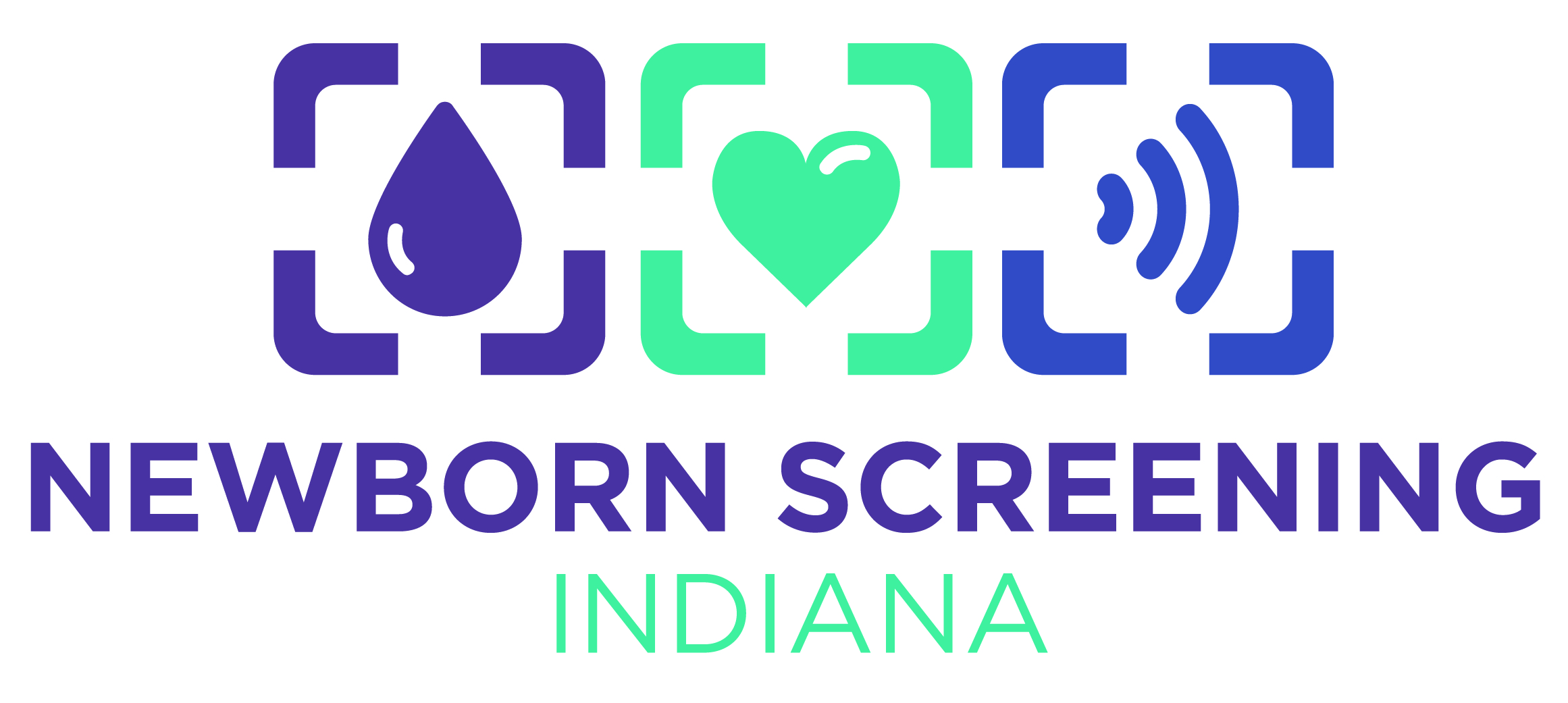NBS Program Information
Overview
The Indiana Newborn Screening Program is a state-funded program within the Maternal and Child Health division at the Indiana Department of Health. The Newborn Screening Program is mandated by the State of Indiana to ensure that timely and quality newborn screening occurs for every Hoosier baby.
Indiana's newborn screening law requires that every baby born in Indiana be screened for over 50 conditions. Newborn screening must be done before the baby leaves the hospital. Babies born at home must have newborn screening within 5 days of birth.
Indiana's Newborn Screening Laws (Beginning on IC 16-41-17)
Indiana's Newborn Screening Rules (Beginning on 410 IAC 3-3)
About Newborn Screening
Newborn screening is a set of three screens that help identify babies at risk for certain conditions. A newborn baby may look healthy but can have a serious condition that cannot be seen. These conditions can be treated if found early. Indiana screens for metabolic conditions, sickle cell disease, cystic fibrosis, congenital hearing loss, critical congenital heart disease, lysosomal storage disorders, and more.
The conditions that newborn screening looks for will often go undetected in babies, making it very difficult to diagnose early on and treat as soon as possible. Performing newborn screening between 24-48 hours of life, allows newborns to be diagnosed early with these rare, often life-threatening, conditions as soon as possible so they can receive treatment. Early treatment of these conditions can make all the difference in the long-term health outcomes of each baby!

